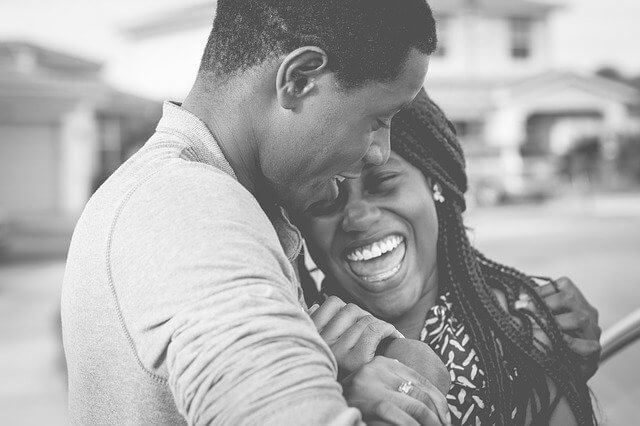How to help a friend in a codependent relationship
Sometime back, I had a friend in a codependent relationship. How did I know this? I was always talking to her on the phone as she called me time and time again to talk about some issues in her relationship. As much as each relationship has its challenges, a codependent relationship can be draining.
How did I know my friend is in a codependent relationship?
From some of the issues she could talk about, I pieced one piece after another and realized that indeed, that was a codependent relationship. Some of those signs are;
Constantly making compromises for the other person

She was constantly making sacrifices for the other person, even if these compromises made her unhappy. It was always one compromise after the other. All she seemed to do is give and get nothing in return. For any person, this can feel exhausting, and feeling unappreciated can really stress you.
Making their partner’s pain their own

You can have empathy for your partner when they are going through a tough time, but be careful not to internalize their pain. When you love them, it is hard to see them suffering, and you empathize with their pain and comfort them. However, when you make their pain your own, this can be unhealthy.
It is not your role to rescue your partner from their pain and if it feels so, this is unhealthy. You can support your partner and help them find their way out of their challenge buy you should develop a boundary to keep you independent.
Walking on eggshells

If you constantly feel shame, anxiety, fear of making mistakes, fear of being judged, or if you do something wrong your partner will leave, these are signs of a codependent relationship. A healthy relationship should be one in which you are happy and you need not walk on eggshells for the fear of offending your partner.
If your relationship gives you anxiety and fear and you are constantly afraid of doing something that will offend your partner, then this relationship is not healthy at all. Other signs are such as resentment and anger that you may feel are brought about by your partner.
They constantly defend their partner

Of course in any good relationship, you should be in your partner’s corner. However, in some unhealthy relationships, you hear all the terrible things your friend’s partner does to them, and yet they still defend this person. Denial is one of the early signs of a codependent relationship. If you point out something their partner is not doing right, they are quick to point out that their partner is a good person and does not mean any harm.
You feel that their partner controls everything

If your friend tells you about all their partner makes all the decisions and it is as if your friend has no say in their relationship, this is unhealthy. Codependent people like to take control because it is what makes them feel safe and secure in a relationship. In a healthy relationship, individuals are active participants in decision-making.
How to help a friend in a codependent relationship
Help them recognize that they are in a codependent relationship

A person cannot solve being in a codependent relationship if they don’t know that they are in a codependent relationship. The first step to helping them is by making them realize that they are in a codependent relationship.
You can do this by highlighting things in their relationship but they may seem normal to the couple but they scream red flags and codependency compared to normal relationships. I also have written about signs you are in a codependent relationship which you can use to help them explore how codependent their relationship is.
Help them develop self-awareness

Help your friend become self-aware and therefore improve their confidence and esteem. Self-awareness will help your friend discover more about herself, her strengths, and her shortcomings. Self-awareness leads to self-understanding and self-acceptance.
When you are self-aware, you don’t need to feel validated by others. You are confident with who you are, flaws and all, and hence less likely to develop codependent behaviors. In the same way, when you are self-aware, you are less likely to feel the need to sustain another person’s codependent behavior. You learn how to create healthy boundaries and therefore good and healthy relationships.
You can learn how to become more self-aware by taking a short self-awareness course. I have also written on how you can develop healthy boundaries in your relationship so that your partner does not violate them leading to codependency.
Help them reparent themselves

We often develop codependent habits or sustain codependent relationships because we have not healed from our childhood wounds. Behaviors such as always trying to please others and over-compromising root from childhood issues such as abandonment and neglect by parents.
This is why it is so essential that we reparent ourselves. I have discussed how to reparent yourself and heal from your childhood wounds. You can help your friend also learn how they can reparent themselves by use of books on reparenting which can be useful in helping them heal from their childhood wounds and become a better version of themselves.
Be supportive

Sometimes people in such relationships can find it hard to quit especially if there are children involved, among other complications. You can help a friend in a codependent relationship by being supportive, listen to them as they vent, and simply be their friend. When you support them, they know they are loved and will with time develop the confidence to draw boundaries in their relationship.
Help them walk away

Sometimes, codependent relationships can be solved through therapy, communication, and willingness to work together. However, if one partner is not willing to work on the relationship, you can help a friend by encouraging them to walk away from the relationship. Codependency is never healthy at all and is likely to get worse with time.
Often, people are hesitant to walk away from their relationships because they feel as if they have invested so much in the relationship and this sounds like giving up. Some people need an extra push to walk away from bad situations. You can help a friend paint a picture of how happy they would be without their partner in a much happier and healthy relationship. This can help them realize they deserve better and walk away from a codependent relationship.
Conclusively, helping a friend in a codependent relationship is not easy especially if they don’t see anything wrong with their relationship. It may take persistently talking to them over time, being supportive, and helping them slowly realize how unhealthy the relationship is. If you don’t manage to save them from a bad relationship, remember that you were a good friend and tried to help.




